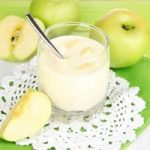
With digestion problems on the rise you have probably heard of probiotics. Probiotics are found in many common foods that we eat on a regular basis – yogurt, for example, can aid in digestion. They are live bacteria and yeasts, which not only improve digestion, but can boost overall health as well. Although probiotics are commonly found in the human body, we still need to obtain more through food and supplementation as they can diminish. For example, taking antibiotics lowers probiotic levels in the body.
Advertisement
If you’ve been trying to get your digestion on track, you may have been paying closer attention to probiotics; however, you may not see any results if you’re not taking prebiotics as well.
Prebiotics help improve digestion
Prebiotics are nondigestible carbohydrates, which essentially end up as food for probiotics. They are found in very specific foods and are heat resistant, which means they will stay intact even if the food is cooked.
The effect of prebiotics is seen as an increase of healthy bacteria in the intestines. Prebiotics stimulate healthy bacteria growth and makes them more resistant to pathogens. By eating foods that contain prebiotics one can experience the prebiotic effect and enjoy better digestion and overall good health.
Prebiotics and probiotics combined to improve digestion
 If you want to get serious about improving your digestion, ensure you have a combination of prebiotics as well as probiotics. When prebiotics and probiotics are combined they create a synbiotic.
If you want to get serious about improving your digestion, ensure you have a combination of prebiotics as well as probiotics. When prebiotics and probiotics are combined they create a synbiotic.
Evidence supports the benefits of prebiotics and probiotics, which are:
- Improved digestion
- Preventing and treating vaginal yeast infections and urinary tract infections
- Speeding up treatment for certain intestinal infections
- Preventing or reducing the severity of colds and flu
Advertisement
The best part about prebiotics and probiotics is that they are generally well tolerated. Also, benefiting from synbiotics is easy and requires minimal dietary changes because many of the foods we eat daily contain one or the other.
Foods with prebiotics
If you’re ready to tackle your digestion and start boosting your body’s own probiotics, you will want to include these foods in your diet more often.
- Bananas

- Onions
- Cabbage
- Legumes
- Whole grains
- Beans
- Apples
Prebiotics are also added to foods that may not normally contain them, such as breads, biscuits, table spreads, cereals, drinks and yogurt. Ensure you read the labels of these items to check if prebiotics have been added.
